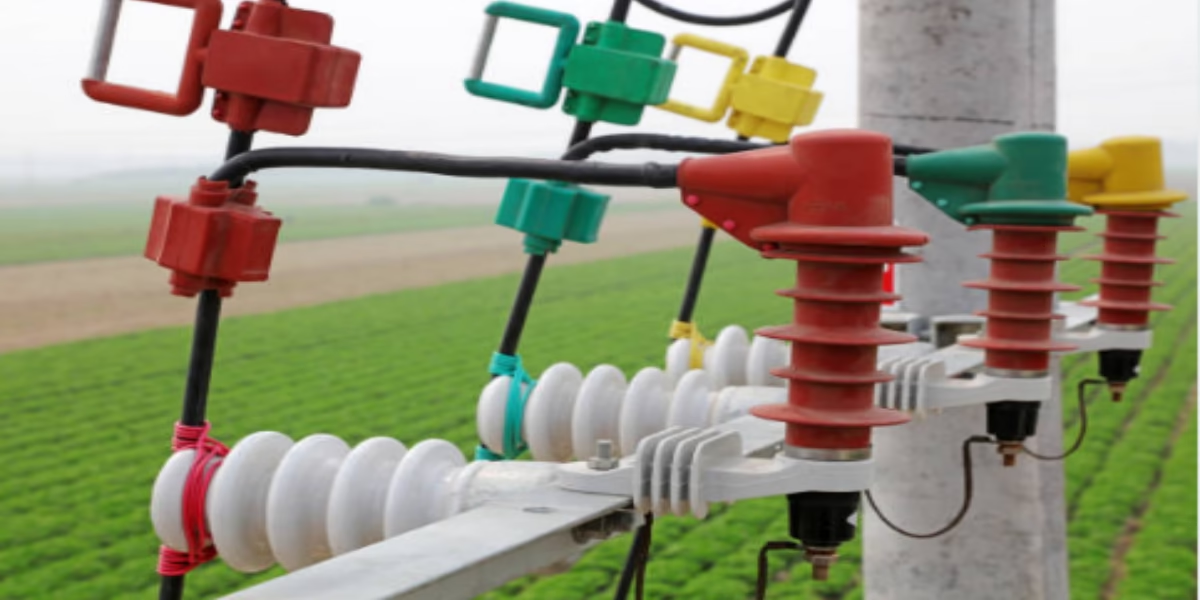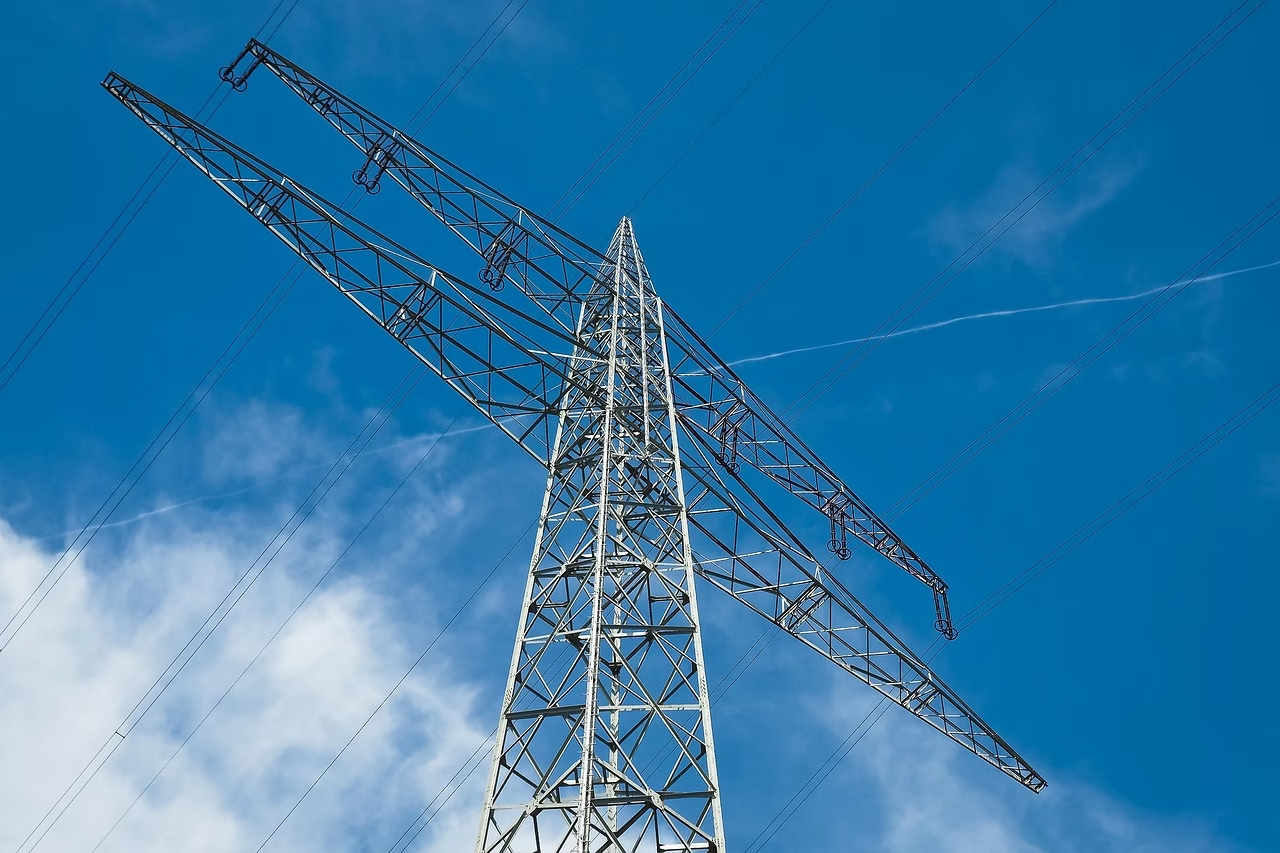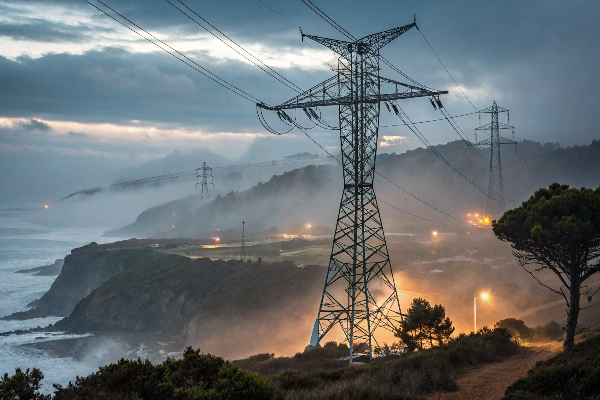In the ever-evolving landscape of electrical engineering, the unsung heroes that often go unnoticed are the materials designed to protect and insulate our power systems. Among these materials, polymer insulators have emerged as a cornerstone of modern infrastructure, providing safety, durability, and efficiency. As the demand for reliable energy solutions grows,so does the pool of manufacturers dedicated to producing these essential components. this article embarks on a journey into the world of polymer insulator manufacturers, delving into the innovations that define the industry, the challenges that propel continuous improvement, and the myriad applications that highlight their meaning. Join us as we explore the intricate synthesis of technology and craftsmanship that shapes the future of electrical insulation.
Table of Contents
- Understanding the Role of Polymer Insulators in Modern Electrical Systems
- Evaluating Key Manufacturers and Their Innovations in Polymer Technology
- Best practices for Selecting the Right Polymer Insulator for Your Project
- Future Trends in Polymer Insulation: What to Expect from Upcoming Manufacturers
- Q&A
- Key Takeaways
Understanding the Role of Polymer Insulators in Modern Electrical Systems
Polymer insulators have emerged as a vital component in contemporary electrical systems, revolutionizing the way utilities manage their overhead lines. Unlike traditional ceramic or glass insulators, polymer insulators are made from advanced composite materials that offer superior properties, making them highly resilient against environmental challenges.Their lightweight design not only simplifies transportation and installation but also enhances structural versatility,reducing the risk of mechanical failure during high winds or seismic events. Additionally,their hydrophobic nature minimizes water absorption,which in turn helps to prevent electrical failures associated with moisture and pollution.
These insulators are increasingly favored due to their longevity and minimal maintenance needs. With enhanced resistance to UV radiation and chemical exposure, polymer insulators can withstand harsh environmental conditions over extended periods. Key benefits include:
- Reduced Weight: Easier handling and installation.
- Enhanced Performance: Improved electric field distribution and thermal resistance.
- Cyclic Stability: Maintaining functionality over fluctuations in temperature and humidity.
Moreover, the manufacturing processes employed by leading polymer insulator manufacturers have adopted innovative techniques to ensure sustainability and efficiency, supporting the global shift towards more eco-friendly infrastructure solutions.
Evaluating Key Manufacturers and Their Innovations in Polymer Technology
In the ever-evolving landscape of polymer technology, several key manufacturers have distinguished themselves through their innovative approaches and superior products. Companies such as General Electric, Siemens AG, and 3M are at the forefront, driving advancements in polymer insulator design and request. These manufacturers leverage state-of-the-art research and development facilities to create insulators that are not only lightweight and durable but also environmentally friendly. Their innovations have led to improved electrical performance and greater resistance to environmental stressors, addressing the growing demand for reliable power transmission in diverse climatic conditions.
Moreover, the competitive edge of these manufacturers lies in their ability to integrate cutting-edge materials and technologies into their product lines. For instance, the use of nanocomposites in insulator design enhances mechanical strength while reducing weight, a crucial factor in modern utility applications. Other notable innovations include:
- Hydrophobicity: Enhanced water repellency to prevent flashover.
- Self-cleaning surfaces: Innovations that reduce maintenance efforts.
- Eco-friendly materials: Initiatives aimed at recycling and sustainability.
To highlight the leading companies and their unique contributions, the following table outlines their key innovations:
| Manufacturer | Innovation | Impact |
|---|---|---|
| General Electric | Advanced polymer blends | Improved electrical insulation |
| Siemens AG | Self-cleaning technologies | Lower maintenance costs |
| 3M | Nanocomposite materials | Enhanced mechanical strength |
Best Practices for Selecting the Right Polymer Insulator for Your Project
When it comes to choosing the ideal polymer insulator for your project, several key factors should be considered to ensure optimal performance and compatibility. start by evaluating the environmental conditions where the insulator will be installed,including factors like humidity,temperature,and exposure to pollutants. the right polymer material will enhance durability, ensuring that the insulator can withstand any harsh conditions. Additionally, it's essential to assess the electrical requirements of your specific application, including voltage levels and loading conditions, to select an insulator that meets or exceeds these performance criteria.
Another critical aspect is the manufacturer's reputation and their adherence to industry standards. It’s advisable to choose a supplier with a proven track record in producing high-quality polymer insulators. Look for certifications that validate their products' integrity, such as ISO or IEC standards. Here’s a rapid summary of aspects to consider when choosing a supplier:
| Criteria | Why It Matters |
|---|---|
| Material Composition | Ensures durability and resistance to environmental factors. |
| Voltage Rating | Defines the capability to handle specific electrical loads. |
| Certifications | Guarantees compliance with global quality and safety standards. |
| Technical Support | Provides assistance in product selection and installation. |
By carefully considering these factors and utilizing a reliable manufacturer, you can ensure that your project is equipped with polymer insulators that offer superior performance, longevity, and safety. Take the time to compare options and consult with experts if necessary to make an informed decision that aligns with your project requirements.
Future Trends in polymer Insulation: What to Expect from Upcoming Manufacturers
The polymer insulation industry is poised for remarkable advancements in the near future, driven by both technological innovations and sustainability goals.Manufacturers are increasingly focusing on enhancing the thermal efficiency and durability of their products, incorporating cutting-edge materials like bio-based polymers and nanocomposites. As these materials become more prevalent, we can expect a surge in customized solutions that address specific insulation challenges across various sectors, from construction to electronics. this shift towards tailored products will likely enhance performance while reducing energy consumption and overall environmental impact.
Moreover, the industry's integration of smart technology is set to revolutionize the way polymer insulations function. Future products may incorporate sensors that monitor thermal dynamics in real-time, allowing for adaptive insulation solutions that respond to changing environmental conditions.Manufacturers are also exploring circular economy practices, emphasizing recyclability and the use of recycled materials in their production processes. This not only aligns with global sustainability efforts but also meets increasing regulations regarding waste reduction. The following table highlights some key aspects of these anticipated trends:
| Trend | Description | Impact |
|---|---|---|
| Bio-based Polymers | Use of renewable resources in insulation products | Lower carbon footprint |
| Nano-enhanced Materials | Improved durability and performance characteristics | Better thermal efficiency |
| Smart Insulation | Integration of sensors for real-time data | Adaptive energy savings |
| circular Economy | Focus on recyclability and reduced waste | Enhanced sustainability profile |
Q&A
Q&A: Exploring the World of Polymer Insulator Manufacturers
Q1: What are polymer insulators and why are they important?
A1: Polymer insulators, typically made from materials like silicone or polymer composites, serve as critical components in electrical infrastructure. They provide electrical insulation, support for conductors, and protection against environmental factors. Their lightweight nature and resistance to pollution and mechanical stress make them essential in modern power transmission systems, enhancing reliability and longevity.
Q2: What distinguishes polymer insulator manufacturers from other types of insulator producers?
A2: Polymer insulator manufacturers specialize in the development and production of insulators that leverage advanced materials to offer benefits like reduced weight and improved resistance to harsh environmental conditions. unlike traditional ceramic or glass insulators, polymer insulators provide flexibility in design and application, catering to the evolving needs of the electrical industry.
Q3: How has the market for polymer insulators evolved over the years?
A3: The market for polymer insulators has seen meaningful growth due to the shift toward renewable energy and the need for modernized electrical grids. As global demand for safer and more efficient power transmission increases, manufacturers are innovating to meet new standards, leading to diversification in their product offerings and a broader international market presence.
Q4: What factors should utilities consider when choosing a polymer insulator manufacturer?
A4: utilities should evaluate several factors, including the manufacturer’s reputation, product quality, compliance with international standards, innovation capabilities, and after-sales support. Additionally, assessing the manufacturer's experience in various environmental conditions and their commitment to sustainability can influence decision-making.
Q5: Can you highlight some key players in the polymer insulator manufacturing industry?
A5: Key players in the polymer insulator manufacturing industry include both established firms and emerging companies. Notable names like GEGrid Solutions and Siemens AG showcase extensive experience and technological advancements, while innovative startups continue to push boundaries in material science and design. Regional manufacturers are also making strides, focusing on localized challenges and customization.
Q6: What role does technology play in the production of polymer insulators?
A6: Technology is pivotal in polymer insulator production, enabling manufacturers to enhance material properties, improve manufacturing processes, and develop complex designs. Techniques such as injection molding, nanotechnology, and computer simulations contribute to creating insulators that can withstand extreme conditions while maintaining optimal performance.
Q7: Are there any environmental considerations in the production of polymer insulators?
A7: Yes, environmental considerations are increasingly critically important. Manufacturers are focusing on using lasting production practices,reducing waste,and employing recyclable materials. The longevity and reduced maintenance needs of polymer insulators also contribute to lower environmental impact over their lifecycle.
Q8: What future trends do you see in the polymer insulator manufacturing industry?
A8: The future of the polymer insulator manufacturing industry is likely to be shaped by further advancements in material science, increased adoption of smart grid technologies, and a growing emphasis on sustainability. Innovations in biodegradable polymers and smart insulators that can monitor their own conditions are on the horizon, promising to enhance efficiency and reduce environmental footprints.
Q9: How can consumers and industries stay informed about the latest developments in polymer insulators?
A9: Staying informed requires engaging with industry publications, attending trade shows, and following leading manufacturers on social media. Webinars, online forums, and academic journals are also valuable resources for gaining insights into technological advancements and market trends in the polymer insulator sector.
Q10: What is the overall outlook for the polymer insulator manufacturing industry?
A10: The outlook for the polymer insulator manufacturing industry is positive, with growth expected due to increasing global energy demands and the transition to cleaner energy sources. As technologies advance and the focus on infrastructure modernization strengthens, polymer insulators will play a vital role in shaping the future of electrical transmission and distribution systems.
Key Takeaways
As we conclude our journey through the landscape of polymer insulator manufacturers, it becomes evident that this sector is not merely about production but rather a testament to innovation and sustainability in electrical engineering. The global shift towards more efficient and resilient power transmission systems underscores the importance of these specialized entities that fuse technology with practical application.
From the cutting-edge advancements in materials to the stringent quality controls that govern production, the dedication of these manufacturers shapes the future of energy infrastructure. As we continue to confront challenges such as aging power grids and environmental concerns,the role of polymer insulators will only grow in significance.
In exploring this vibrant world, we’ve glimpsed the intricate interplay between industry needs and technological development. As we look forward to the next chapter in this evolving narrative, one thing is clear: the polymer insulator sector stands ready to illuminate the path toward a more robust and sustainable energy future. thank you for joining us on this exploration; may it inspire curiosity and thankfulness for the innovations that keep our world connected.





